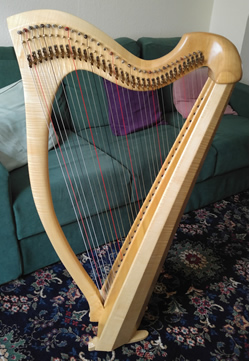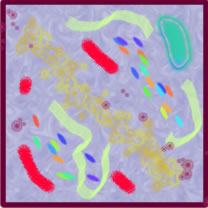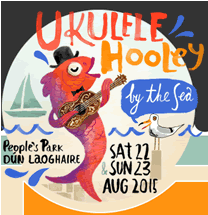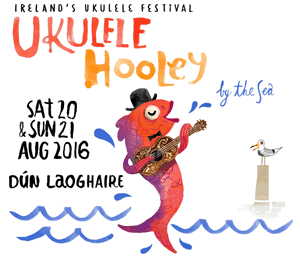
I’m having a great time at the Ukulele Hooley this weekend, so I thought I’d look into some ukulele-related words.
There are various possible words for people who play the ukulele:
– Ukulele player
– Uker
– Ukist
– Ukeist
– Ukulist
– Ukulelist
– Ukuleleist
– Ukulelian
– Uke-phreak
– Ukester
– Ukestrator
– Ukeleler
There are also words for things ukulele-related: ucal (based on duke/ducal), or ukel (based on yokel).
Sources: forum.ukuleleunderground.com and MetaFilter
Then there are some words, which I just made up, for what ukulele players do, i.e. play the ukulele: uke, ukelize, ukify. Can you come up with any others?
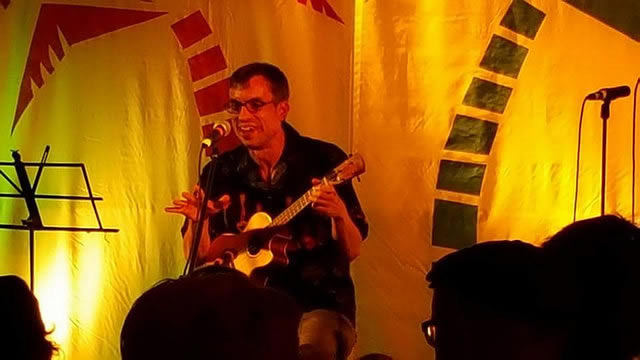
I sang one my songs, Spollagyn son tey / Chips for tea, in the open mic session last might (see photo above). I usually sing it unaccompanied, and messed it up a bit at the start, but it went okay after that. I was also singing it from memory, which is fine when I’m just singing, but when I’m play the ukulele at the same time, it’s a lot more challenging, and definitely needs more practice.
So what would you call a group of ukulele players?
A strum, a hooley, or something else?
Suggestions welcome.
Other collective words for musician can be found at: https://thesession.org/discussions/27892
If you’re in the Dublin area today, why not come along to a free concert in the People’s Park in Dún Laoghaire this afternoon from 12pm.
